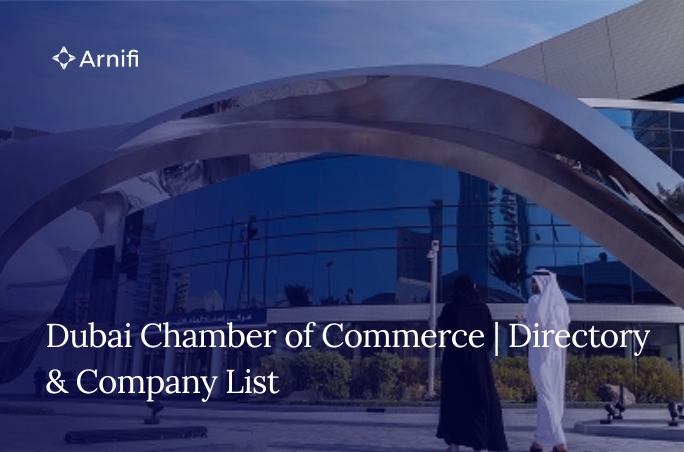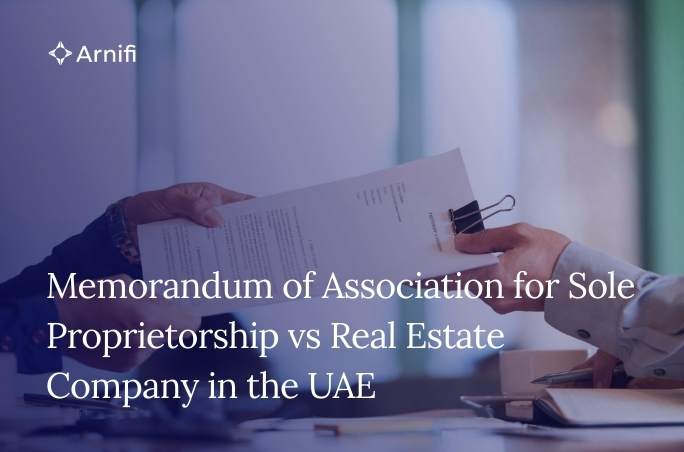Understanding the Legal Landscape of Business in UAE – 2025
by Mushkan S Apr 18, 2025  10 MIN READ
10 MIN READ

The United Arab Emirates (UAE) stands as a global magnet for entrepreneurs and investors. Known for its strategic location, stable economy, and innovation-friendly policies, the UAE is a popular choice for business setup across industries from tech and logistics to hospitality and finance. Yet, beneath this business-friendly exterior lies a complex legal framework that governs how businesses operate.
Before launching or expanding a business in the UAE, it is crucial to understand its legal environment. This includes recognizing the difference between federal and local laws, knowing the roles of free zones, comprehending licensing categories, and being aware of labor, tax, and dispute resolution frameworks.
This blog will explore the full legal landscape of business in UAE , from the structure of the UAE legal system to practical compliance requirements—equipping you with the knowledge to make informed and confident business decisions.
1. Overview of the UAE Legal System
The UAE has a dual legal system, consisting of federal law applicable across the seven emirates and local lawsthat may be emirate-specific. That means a Dubai business might be subject to different rules than an Abu Dhabi one — especially when it comes to real estate, business licensing and economic free zones.
Federal law is governed by institutions like the Ministry of Economy, Federal National Council, and the Federal Supreme Court. These authorities manage issues related to commercial law, labor law, immigration and taxation. At the same time, local authorities like Dubai Economy (DED) or Abu Dhabi DED implement emirate-based regulations concerning company formation and operations.
The UAE legal system has a unique combination of Sharia law, civil law, and common law systems. Civil law serves as the basis for things like commercial and corporate laws, while Sharia law pertains primarily to personal aspects, such as marriage, divorce and inheritance. Notably, free zones like Dubai International Financial Centre (DIFC) and Abu Dhabi Global Market (ADGM) follow common law frameworks, generally based on English law, in particular for commercial and financial disputes.
This hybrid gives it freedom but also requires you to have a firm grasp of which rules apply in
your jurisdiction of choice. It’s why often businesses will work with legal or corporate services firms before they even do the setup.
2. Business Structures and Legal Entities in the UAE
If you are looking to setup a business in the UAE, it is important to know the various legal structures available in Prime Emirate as they all vary in terms of benefits, restrictions on operations and ownership, etc. The UAE provides three main categories for business setup: Mainland, Free Zone, and Offshore.
Mainland Companies
Mainland companies are registered at the Department of Economic Development (DED) of each emirate. However, these companies can be operated from anywhere in the UAE and integrate freely in international trading, so these are a perfect option for businesses that are looking forward to cater to local and global markets. Foreign investors used to need a local Emirati partner who would own at least 51% of the company’s shares. Nevertheless, recent reforms ever since have permitted 100 percent foreign ownership in most industries, making mainland companies a good option for foreign entrepreneurs.
Free Zone Companies
Free zones are special economic zones that offer advantages like 100% foreign ownership, tax exemptions, and streamlined import/export processes. Be it DMCC in Dubai or RAKEZ in Ras Al Khaimah, each free zone is under its own individual authority. Although the regulatory and operational advantages of a free zone company are appealing, it should be noted that it is only permitted to operate within the free zone or internationally. In the mainland, a local distributor or representative is required to trade.
Offshore Companies
Offshore companies, such as those which are incorporated in JAFZA or RAK ICC, are essentially utilized for asset protection, international business, or investment holding. They are not permitted to engage in business in the UAE but provide benefits in the form of confidentiality and tax advantage.
Common Legal Entities
Limited Liability Company (LLC): Used most by firms needing 1-50 shareholders. LLCs provide limited liability and are now open to 100% foreign ownership in nearly all industries except a few.
Sole Proprietorship: Controlled and owned by one individual, usually worked by professionals.
Civil Company: For 100% foreign-owned professional services like doctors, lawyers, or consultants under specific conditions.
Branch Office: A foreign firm with a local service agent, limited to the activities defined by the parent firm.
Representative Office: A non-business organization used to market the parent company’s operations and is typically required to have a local service agent.
Choosing the right structure depends on your business objectives, operational needs, and expansion plans. Consulting a corporate services provider can help ensure compliance with UAE laws.
3. Licensing and Regulatory Framework
In the UAE, obtaining the correct business license is essential for legal operation. It ensures compliance with local regulations and allows businesses to operate within their respective sectors. Without a valid license, businesses risk penalties, fines, or closure.
Types of Licenses
The UAE offers several business licenses based on activity:
Commercial License: Issued for trading activities such as import, export, and distribution of goods.
Professional License: Required for service providers like consultants, doctors, and educators. It often requires a local service agent if the business owner is a foreigner.
Industrial License: For businesses involved in manufacturing, processing, and assembling goods.
Tourism License: Issued to businesses within the hospitality sector, including travel agencies, hotels, and tour operators.
Regulatory Authorities
Licensing is overseen by different authorities, depending on the business location:
Department of Economic Development (DED): Manages mainland business licenses.
Dubai Multi Commodities Centre (DMCC), Abu Dhabi Global Market (ADGM), and Dubai International Financial Centre (DIFC): Oversee free zone and financial businesses.
4. Key Legal Requirements for Operating a Business in the UAE
Every nation has its own regulations that companies have to abide by when they establish themselves in their nations.
There are key legal components needed for business to function successfully.
Trade Name Registration
Choosing and registering a unique trade name is the first step, ensuring it is consistent with UAE laws and not similar to existing ones.
Office Space Requirements
The majority of companies require a physical office space, although some of the free zones provide flexible desk arrangements or coworking space.
Compliance with Labor and Immigration Laws
Firms have to comply with labor legislation regarding employment, contracts of work, and rights of workers, such as properly handling workers’ visas.
Data Protection and Cybersecurity Legislation
Firms need to know and comply with laws on computer security and data security to protect sensitive customer information.
5. Employment and Labor Laws
UAE Labor Laws: Key Facts for Employees and Employers
The UAE labor laws, which are governed by Federal Decree Law No. 33 of 2021, apply to private sector employment, including UAE nationals and expatriates, except for a few types of jobs.
National and Expatriate Employment Regulations
Employers have to adhere to Emiratisation rules that mandate theemployment of UAE nationals in certain numbers. To employ foreign workers, companies need to obtain work permits and residence visas from the Ministry of Human Resources and Emiratisation (MOHRE).
Important Labor Laws Regulations
Employment Contracts: Every worker must have a written contract. Contracts can be fixed-term (for up to 3 years) or unlimited.
Probation Period: It is 6 months. Either party may terminate the contract during this period by notice and a good reason.
Termination: Either party can terminate the contracts, subject to the process being in accordance with labor law requirements. Termination without notice is permitted in grave cases such as misconduct.
End of Service Gratuity: Gratuity pay based on service duration and lastpay is owed to employees.
Emiratisation Updates
To increase the number of people working in the country, the UAE government keeps introducing programs and rewards that encourage private companies to employ UAE nationals.
6. Taxation and Financial Compliance in the UAE
The UAE has introduced several tax and compliance regulations to align with global standards and ensure long-term economic stability.
VAT and Corporate Tax Overview
VAT: Implemented in 2018, VAT is charged at 5% on most goods and services. Businesses with taxable supplies over AED 375,000 must register with the Federal Tax Authority (FTA), file regular returns, and maintain accurate records.
Corporate Tax: Introduced in June 2023, a 9% tax applies to net profits exceeding AED 375,000. Businesses must follow filing deadlines and maintain proper financial records to stay compliant.
Reporting and Bookkeeping Requirements
Businesses in the UAE are obligated to maintain accurate and up-to-date financial records. This includes:
Keeping detailed accounts of all transactions.
Preparing financial statements in accordance with International Financial Reporting Standards (IFRS).
Submitting annual tax returns to the FTA
Failure to comply with these requirements can result in penalties, including fines and potential suspension of business activities.
Economic Substance Regulations (ESR) and Anti-Money Laundering (AML) Compliance
Economic Substance Regulations (ESR): Introduced to prevent harmful tax practices, ESR requires entities conducting “relevant activities” (such as banking, insurance, and intellectual property holding) to have substantial operations in the UAE. Businesses must submit annual notifications and reports to demonstrate compliance.
Anti-Money Laundering (AML): The UAE has stringent AML laws to combat money laundering and terrorist financing. Businesses are required to conduct customer due diligence, report suspicious transactions, and maintain records to comply with AML regulations.
7. Dispute Resolution and Legal Resources in the UAE
The UAE offers a strong legal system for the settlement of business disputes, providing protection to investors and business entities.
Civil vs Commercial Courts
The UAE judicial system consists of civil and commercial courts. Civil courts handle contract, labor, and property cases, while commercial courts handle corporate or business partner cases. Legal cases gothrough three stages: the Court of First Instance, the Court of Appeal, and the Court of Cassation.
Arbitration and Alternative Dispute Resolution (ADR)
Arbitration is more popular for the settlement of commercial conflicts, offering a faster and confidential alternative to normal court procedures. Foreign arbitral awards are recognized by the United Arab Emirates under the New York Convention. Major arbitration hubs include the Dubai International Arbitration Centre (DIAC) and the Abu Dhabi Commercial Conciliation and Arbitration Centre (ADCCAC).
DIFC and ADGM Specialized Courts
The DIFC and the ADGM courts are independent in applying English-language common law. Both courts are well-suited for international investors who are comfortable with clear and known legal procedures, providing effective, technology-enabled dispute resolution for commercial and civil disputes.
8. Recent Legal Reforms and Future Outlook in the UAE
The UAE has initiated significant reforms to improve its business environment and draw in foreign investors.
Major Reforms:
100% Foreign Ownership: Foreigners are now able to 100% own mainland firms in most industries, eliminating the earlier need for a local sponsor. This is expected to boost FDI and diversify the economy.
Visa Reforms: Long-term visas such as the 10-year Golden Visa and 5-year Green Visa provide security for investors, entrepreneurs, and skilled workers to stay long-term and keep talent in the country.
Modernization Initiatives:
Digital Licensing: The new Abu Dhabi Registration Authority (ADRA) makes business registration easier. It follows global regulations and streamlines the establishment process to be faster.
ESG Focus: The UAE is encouraging improved Environmental, Social, and Governance (ESG) practices, calling on companies to embracesustainable and ethical practices.
These changes solidify the UAE as an international center of new thinking, investment, and business development.
Conclusion:
Starting and running a business in the UAE presents immense opportunities — but also legal responsibilities that must be understood by every entrepreneur. From choosing an appropriate business structure to meeting licensing, labor, tax and cybersecurity regulations, each step is an integral part of a successful long-term strategy. With a dual legal system of federal and emirate level policies, along with new reforms like 100% foreign ownership and long term visa options, the UAE is committed to creating a more transparent and globally-competitive business environment..
However, navigating these changes is not simply a matter of awareness — it is about expertise. Compliance can differ based on both the emirate and business activity, with noncompliance leading to delays, fines, or business operations that cannot be conducted.
Top UAE Packages

Related Articles
Top UAE Packages



